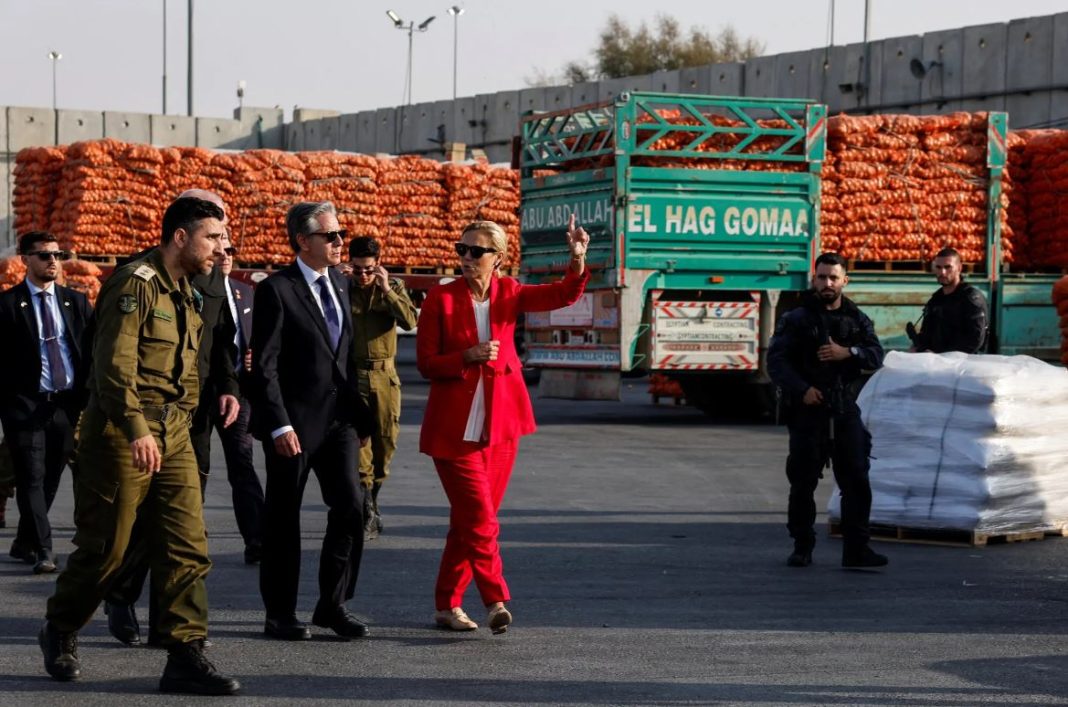President Biden made the decision last week to halt an arms shipment to Israel in order to prevent U.S.-made weapons from being utilized in a potential assault on the city of Rafah, according to administration officials on Tuesday night. This move signifies a notable divergence between the United States and Israel regarding the handling of the ongoing conflict.
The withheld shipment included 1,800 2,000-pound bombs and 1,700 500-pound bombs, which President Biden feared could be deployed on Rafah, where over one million Gazans have sought refuge. Additionally, the administration is currently reassessing whether to withhold future transfers, such as guidance kits used to convert conventional bombs into precision-guided munitions.
This decision marks the first instance since the October 7 Hamas-led terrorist attack that President Biden has utilized his authority to restrict arms shipments as a means to influence Israel’s approach to the conflict. While several Democratic allies in Congress have advocated for limiting or halting arms shipments to Israel, President Biden had previously refrained from taking such action due to his staunch support for combating Hamas.
The administration initiated a review of arms shipments last month as it became evident that Israel was contemplating an operation in Rafah. Initially, President Biden urged Israel to refrain from attacking Rafah without a viable plan to minimize civilian casualties. However, the White House later expressed doubts about the feasibility of such a plan.
While Israel has not explicitly signaled an imminent assault on Rafah, recent actions suggest a potential escalation. Israeli forces evacuated 110,000 civilians from Rafah and conducted airstrikes along the city’s border areas in response to Hamas rocket attacks that killed four Israeli soldiers over the weekend.
Despite these developments, President Biden did not mention the decision to withhold the bombs during his speech at a Holocaust remembrance ceremony earlier on Tuesday. However, he reiterated his unwavering support for Israel’s security and existence as an independent Jewish state.
It is important to note that the arms pause does not encompass all weapons shipments to Israel, and a final determination regarding the withheld bombs has yet to be made. The administration recently approved $827 million worth of weapons and equipment for Israel, reaffirming its commitment to providing military aid.
However, concerns persist about the potential humanitarian impact of utilizing 2,000-pound bombs in densely populated areas like Rafah, especially given the large number of displaced civilians. Furthermore, the administration remains undecided about whether to proceed with the transfer of guidance kits for precision-guided munitions.
Tuesday’s developments also underscored growing tensions between the Biden administration and the Israeli government. While President Biden has emphasized the need to address humanitarian concerns, Israeli actions such as the seizure of the Gaza side of the Rafah border crossing have complicated humanitarian aid efforts.
As the conflict continues, the Biden administration faces mounting pressure to reassess its relationship with Israel, particularly regarding arms sales. Secretary of State Antony J. Blinken is expected to deliver a report to Congress this week evaluating whether Israel has adhered to U.S. and international laws in its use of American weapons. The findings of this report could significantly influence future U.S. policy toward Israel and impact ongoing efforts to address the conflict’s humanitarian consequences.

